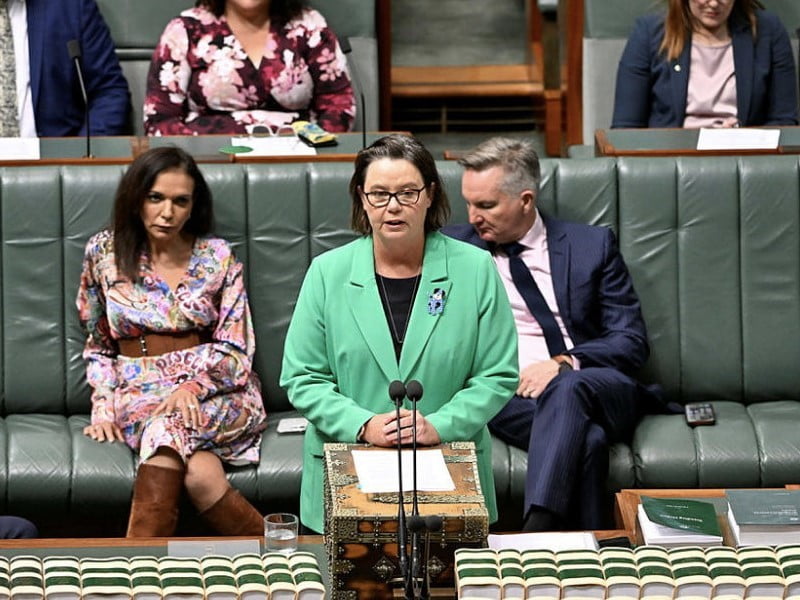The federal government will develop a regulatory framework for carbon, capture, and storage projects, with Resources minister Madeleine King on Tuesday reiterating her support for the technology.
Ms King told the Australian Petroleum Production and Exploration Association conference on Tuesday of the “scope to dramatically scale up Australia’s offshore CCS capability”, flagging opportunities to provide projects with “regulatory and administrative certainty”.
The federal government will soon begin “public consultation on a new round of greenhouse gas storage acreage”, she added.
Last August, Ms King approved Australia’s first two new offshore greenhouse gas storage permits in 14 years.

Despite the lack of additional funding support in last week’s budget for CCS projects, Ms King said the Safeguard Mechanism would incentivise CCS developments.
Ms King has advocated for CCS since becoming Resources minister and told a conference in February that Australia could be a world leader in the carbon capture industry, which would make the country “a top exporter of low-carbon intensity energy in our region”.
In April, a report by the Climate Change Authority said that “storing carbon away from the atmosphere is essential, both to prevent greenhouse gases from entering the atmosphere and to remove them from it” and would be needed to meet global emissions reduction targets.
It also recommended the development of separate targets for emissions reduction and removal, calling for a “carefully designed portfolio” of carbon sequestration techniques, which would include CCS.
The commitment to a Commonwealth-led regulatory framework follows the cancellation of reportedly more than $250 million of grants for CCS projects in Labor’s October 2022-23 budget.
Funds were partially redirected to establish a $141.1 million program to accelerate research and development of novel carbon capture, utilisation, and storage (CCUS) technologies, such as direct air capture, and for use in hard to abate sectors.
At the time, a Department spokesperson told InnovationAus.com that this would support demonstration activities, but not commercialisation as the government expects fossil fuel companies to be able to sufficiently fund their own CCUS investments.
The lack of government funding for CCS projects also extends to blue hydrogen projects, which is not expected to be eligible to compete for a contract under the $2 billion Hydrogen Headstart scheme.
A Greens amendment to the $15 billion National Reconstruction Fund prevents it being used to directly finance coal and gas extraction or the construction of supporting pipeline infrastructure.
In response to a question from InnovationAus.com in March on whether the amendment would preclude investment in CCS, the Greens Industry spokesperson Senator Penny Allman-Payne said the NRF shouldn’t provide “funding for anything to do with fossil fuels”.
The Minerals Council of Australia and Cement Industry Federation have both called for CCUS technologies to be supported through the NRF.
The Academy of Science has suggested that greenhouse gas removal technology should be considered for inclusion in Australia’s revised national research and science priorities and funded through the Australian Renewable Energy Agency, Clean Energy Finance Corporation and the proposed National Reconstruction Fund.
Australia’s first commercial-scale CCS development, attached to Chevron’s Gorgon natural gas, has failed to reach its four million tonnes per annum storage target, achieving just over two million tonnes.
Do you know more? Contact James Riley via Email.

